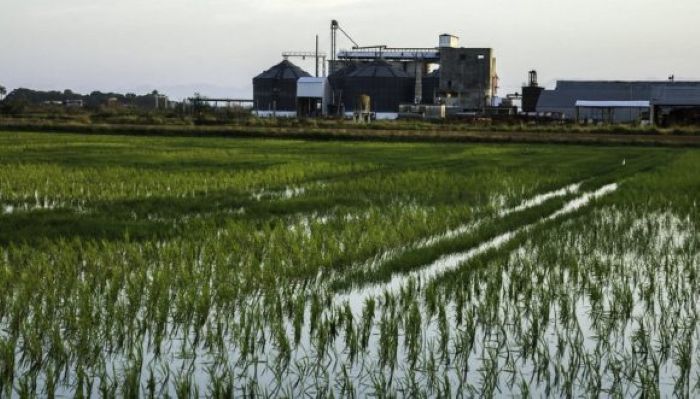Although Vietnam is the Asian country with the largest foreign investment in Cuba and one of its main trading partners, the results of rice production being obtained in Los Palacios, Pinar del Río, with the collaboration of the sister country, have captured the general attention of the population regarding bilateral economic relations.
Based on the consensus reached between the First Secretary of the Party Central Committee and President of the Republic, Miguel Díaz-Canel Bermúdez—who is now completing his second official visit to the beloved Indochinese nation—and the General Secretary of the Communist Party of Vietnam, To Lam—who visited Vietnam a year ago—the robust relations of friendship and solidarity between both parties, governments, and peoples continue to strengthen.
Dr. of Science Telce Abdel González Morera, one of the most internationally recognized Cuban scientists specializing in grain crops, and for several months Vice Minister of Agriculture for Science, Investment, Foreign Collaboration, and Foreign Trade, among other responsibilities, spoke with the Press Group of the Presidency of the Republic about the history and current status of rice production with Vietnamese cooperation.
Limitations in the production, supply, and availability of food, such as rice, a staple of the Cuban diet, are among the population’s main concerns, but the development of a rice program with Vietnamese participation has generated new hope for the country’s ability to achieve self-sufficiency in this cereal.
For Dr. C. González Morera, however, the current state of Cuban-Vietnamese cooperation in agriculture cannot be seen as an isolated event.
“First of all,” he explains, “there are very strong historical ties between Cuba and Vietnam, built by Fidel and Ho Chi Minh, who, despite never meeting in person, managed to build ideological platforms solid enough to break the barriers of time and generational barriers.
“I have been to Ho Chi Minh’s mausoleum in Hanoi and have met elementary school children visiting it. They speak English very well, and you speak English with them, but you tell them you’re Cuban, and they jump for joy and call you Fidel, Fidel, Fidel.
“It’s a very interesting thing how, over such a long time, two men as great as Fidel and Ho Chi Minh, with their great vision of the future, managed to build something with the strength that, decades later, children still feel it, regardless of whether they are taught it in school or not.
“It’s as if a spirit has been created between Cuba and Vietnam that transcends all barriers. One day, history will have to recognize that, because few countries have managed to build that strength into the ideological constitution of the country, in such a way that it remains there, immobile, unbroken; on the contrary, it grows despite the fact that we are so geographically distant, despite the fact that we have such different cultures.”
“And I think that has to do with how hard-working the Vietnamese and Cubans are, with our strength, our will; with the fact that we are not inconsistent; with the fact that we do not make political concessions of any kind.”
—Economically, rice seems to be the leading product of bilateral cooperation today. There has been a long-standing collaboration in this area, but it had never been heard of before achieving results like those being achieved in Los Palacios. Why is this happening now and not before?
“In the specific case of rice, in the late 1990s, cooperation efforts began to emerge between the agricultural academic sectors of both countries, when Vietnam was building its Academy of Agricultural Sciences, a solid institution that brings together several research institutes.
“Then the first stage of a project began to take shape, which officially began in 2002 and ended in 2004. It was very small; it consisted of sending specialists, many of whom had studied agronomy in Cuba. They returned from university studies and began to introduce some of the technologies that had proven successful for them in their agricultural conditions.
[ SOURCE: CUBA DEBATE ]

